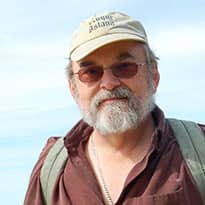Yesterday I was reading my January 28 issue of New Scientist when I came across an interesting interview with Greg Feist, a psychologist studying what is called the "psychology of science." In the article, he and the interviewer discussed why Jews were so over-represented in the scientific community. Two percent of the population is Jewish and 30 percent of members of the National Academy of Science are, and the same percentage holds for Nobel Laureates. Why?
Feist, who is Catholic and married to a Jew, explained that Judaism has no hierarchy, no person with special access to truth and also has a healthy tradition of debate. Catholicism is about as hierarchical as a religion can get. Jewish over-representation in science, Feist said, "is no coincidence."
This interview got me to thinking about the larger implications of his observation: science benefits when it exists within a culture of equal status and free and respected debate.
Today everywhere we look we see that the more religiously Fundamentalist the individual, the greater their problem with modern science. Fundamentalism is about as closed an intellectual system as humans can devise, for the only possible forms of truth must confirm a "literal" interpretation of scripture. During my brief Fundamentalist phase in high school, I was repeatedly told that Adam's sin was rebellion against authority and we were enmeshed within a hierarchy of authorities starting with the Big Guy on top.
Ultra-conservative Catholics and ultra-orthodox Jews are little better, if they are better at all. They also experience reality as a hierarchy in which each is expected to know their place. The closest analogy to these religions, and it is very close, is conservative Muslim societies, and they make next to no contributions to science either.
If I remember correctly (my copy is far away), in Drawing Down the Moon Margot Adler wrote that she was surprised at the number of Pagans she interviewed that were deeply engaged in scientific endeavors. That was also my experience in Berkeley. I have met physicists, chemists, medical scientists and geologists who were Pagans. None found any problem between the two. I imagine there are the Pagan equivalents to Christian Fundamentalists. There were in Socrates' time, as we can see when we read the Euthyphro. But they are very few. There are interesting reasons for this.
Modernity
Institutionally modern Western society is based on equality of status between people. It therefore is at cross purposes to the values and societies of the pre-modern Western past, and of the religions that were shaped by them. This pre-modern Western world was agricultural, a world of great extremes in wealth, and profoundly hierarchical. It rested on and reinforced spiritual traditions that encouraged hierarchical relations and knowing one's proper place. This included regarding a sacred scripture as infallible, that some people were innately superior in basic ways, and believing some people should be taken as unquestioned spiritual teachers.
The rise of Western modernity was slow, sometimes hesitant, and I think a very good story. The equality between people it has generated created unparalleled prosperity and scientific knowledge for humanity as a whole. But it rests on a pre-modern foundation that not everyone has outgrown.
Many people benefiting from modernity's strengths still possess religious and cultural values rooted in this pre-modern world. These Fundamentalists and similar groups reflect our culture's inheritance from its past. They benefit from what they could never accomplish if society reflected their values more completely. Happily, most Westerners are no longer a part of those groups. Unhappily, many are still influenced by habits of mind they have to some degree outgrown.
For historical reasons, to an unusual degree secular and liberal Jews have freed themselves from these pre-modern attitudes more than most. And so they have developed habits of mind, of inquiry and confidence in their own capacities, that enable them to do exceptionally well in science.
In this very important respect, I think Paganism is almost uniquely situated to speak to modern sensibilities. This grows from two characteristics that are almost universal among us.





